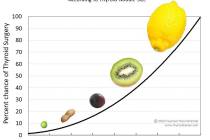Turkey only partly to blame for sleepiness
Shortly after enjoying a holiday meal, many people complain about increased drowsiness as direct result of eating turkey. Turkey, along with other poultry, meat, fish and cheese contains L-tryptophan, which is often blamed for causing drowsiness.
L-tryptophan is an amino acid provided to the body only through diet and is a major building block of protein. Tryptophan also contributes to the brain chemical serotonin, which is known to play a crucial role in moods. It breaks down into melatonin, which is known for its effects of sleepiness.
Turkey contains the same amount of tryptophan as other poultry. In fact, it contains a little less than chicken. So why do most us blame Thanksgiving sleepiness to the turkey?
It turns out that it is not the turkey itself that encourages sleepiness, rather the added effects of the other foods we eat in combination with our Thanksgiving turkey.
The correlation between Thanksgiving and sleepiness can be attributed to the intake of turkey and other foods high in carbohydrates that affect our serotonin levels. The small amount of carbohydrates (less than 30 grams) found in a simple snack coupled with stored tryptophan or turkey, has a profound effect on the amount of serotonin produced, which produces the sleepiness associated with Thanksgiving.
These serotonin-boosting snacks may include only several Fig Newtons, half of a small bagel with honey and even a few cups of popcorn after eating turkey or other foods high in tryptophan that trigger sleepiness. This could be a good combination for those who have trouble sleeping.
But for those who require less help falling asleep, try to avoid eating 30 grams of carbohydrates after eating protein-rich foods such as turkey.
What’s going on in the body behind the scenes?
Because of tryptophan’s thicker, more complex structure, passing through the blood stream and into the brain takes some time. Essentially, very little tryptophan makes its way to the brain. However, a small amount of carbohydrates provides the bounce tryptophan needs to enter the brain and jump start serotonin levels. Remember, it’s not the turkey alone that will cause changes in mood or increase sleepiness, it is that little added carbohydrate that typically causes these outcomes.
Thanksgiving also is a time of the year when overeating is common. Digestion requires much energy from the body, energy that could have otherwise been used elsewhere.
Enduring the holiday season requires us to manage not only multiple schedules but the resulting secondary stress. Unhealthy eating behaviors are often used as a coping mechanism for stress or overloaded schedules during the holidays.
Healthy eating habits can prevent unintended weight gain, fatigue and also help manage stress. With gathering of family and friends around a large table of food, it is difficult for some not to overeat.
It is estimated that an average of 1 to 5 pounds is gained during the holidays and for those suffering from high blood pressure or high cholesterol, holiday eating becomes even more cumbersome.
Here are some tips that will allow you to enjoy a holiday meal without increasing health risks:
n Avoid eating the skin of the turkey, which is robust in saturated fat and cholesterol.
n Eat white meat rather than dark meat; dark meat has higher fat content
n Stuffing has more than 550 calories per spoonful mainly because of its butter content. Chicken broth may be substituted for butter, or try substituting stuffing with wild rice.
n Serve mashed potatoes made with low-fat milk and low-sodium chicken broth versus butter.
n While sweet potatoes are a great source of vitamin A and D, the amount butter, sugar and loaded marshmallow topping counteracts the benefits. Cut down on the amount of sugar and butter and top lightly with mini marshmallows.
n Pecan pie is loaded with calories. Try eating pumpkin pie instead or have a very small slice without the crust.
n Choose shrimp, vegetables and fresh fruit as healthy appetizers.
To Your Health is written by the staff of Boulder City Hospital. For more information, call 702-293-4111, ext. 576, or visit bouldercityhospital.org.











